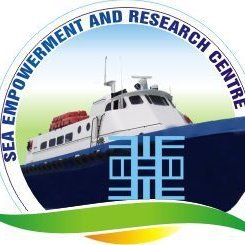Nigeria possesses significant untapped potential within its maritime tourism sector, a global industry estimated to be worth over $6.45 trillion. The Sea Empowerment Research Centre (SERC) argues that strategic investments and policy adjustments are crucial for Nigeria to capitalize on this potential and establish itself as a prominent player in the global maritime tourism landscape. Currently, despite its extensive coastline and rich natural resources, Nigeria’s maritime tourism sector remains underdeveloped, lagging behind other nations in the marine tourism index. This underperformance is attributed to various challenges, primarily a lack of necessary infrastructure, inconsistent policies, and persistent security concerns. These issues hinder the sector’s growth and prevent Nigeria from fully realizing the economic benefits associated with a thriving maritime tourism industry.
The SERC emphasizes the importance of a multi-pronged approach to address these challenges and unlock Nigeria’s maritime tourism potential. This approach includes substantial investment in modern port facilities, marinas, and recreational areas, fostering public-private partnerships to stimulate investment and development, enhancing security measures to ensure the safety of tourists and investors, developing coastal communities to participate in and benefit from tourism activities, and promoting multi-sectoral collaboration among government agencies, private investors, and local communities. By addressing these critical areas, Nigeria can create an environment conducive to attracting tourists and investors, ultimately boosting the growth of its maritime tourism sector.
The recent establishment of the Marine and Blue Economy ministry and the forthcoming Marine and Blue Economy Development Policy plan are viewed as positive steps towards realizing Nigeria’s maritime tourism ambitions. The ministry’s creation provides a dedicated focus and strategic framework for the sector, paving the way for increased investment opportunities. Prioritizing infrastructure development and enhancing security within the maritime sector are key components of this plan, which are expected to drive economic growth, diversify the Nigerian economy, and enhance global competitiveness. The policy plan is anticipated to provide a roadmap for achieving these objectives, further strengthening Nigeria’s position in the global maritime tourism market.
The development of a robust maritime tourism industry holds significant promise for Nigeria’s economic future. It has the potential to generate substantial revenue streams, create numerous job opportunities, and stimulate overall economic growth. Furthermore, it offers a viable pathway for diversifying Nigeria’s economy, reducing its dependence on oil revenue, and promoting sustainable development within coastal communities. By strategically investing in its maritime tourism sector, Nigeria can create a more resilient and diversified economy, less susceptible to fluctuations in the global oil market.
Realizing this potential requires a concerted effort from both the government and industry stakeholders. Investing in modern infrastructure is paramount. This includes developing state-of-the-art ports, marinas, and recreational facilities that meet international standards and cater to the needs of tourists and investors. Promoting public-private partnerships is crucial to attract private sector investment and expertise in developing and managing maritime tourism projects. Enhancing maritime safety and security is essential to build investor confidence and ensure the safety of tourists, creating a welcoming and secure environment for all stakeholders.
Furthermore, developing coastal communities is vital for ensuring that local populations benefit from tourism development. This involves providing training and employment opportunities, improving infrastructure, and preserving the cultural heritage of these communities. Fostering multi-sectoral collaboration is equally important, bringing together government agencies, private investors, and local communities to work together towards a common goal. This collaborative approach ensures that all stakeholders are involved in the planning and implementation of maritime tourism projects, maximizing their effectiveness and ensuring long-term sustainability. By implementing these strategies, Nigeria can harness the vast potential of its maritime sector, generate significant revenue, create jobs, stimulate economic growth, and establish itself as a key player in the global maritime tourism industry. This, in turn, will contribute to a more diversified and resilient economy, creating opportunities for sustainable development and prosperity across the nation.














